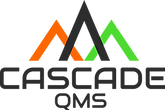Do you need a Risk Assessment?
As an employer, it is your responsibility to take every precaution to protect your employees. Risk Assessments are a staple of premium safety practices.
Risk Assessment is defined as a systematic process of evaluating the potential risks that may be involved in a projected activity or undertaking. While you may not be familiar with the term Risk Assessment, you may be familiar with JSA (Job Safety Analysis) or JHA (Job Hazard Analysis). All three of these terms have the same definition and have the same purpose: to identify relative hazards on the job site.
Different Types of Risk Assessments
There are four different types of Risk Assessments:
Qualitative
This is the most common type of Risk Assessment. The Qualitative Risk Assessment is created in the initial stages of a project by compiling a list of prioritized risks expected.
Quantitative
Often referred to as a QRA. This is a consolidated risk gauging based on the traditional technical failures specific to the industry.
Generic
Generic Risk Assessments are quite frankly what the title alludes to – generic. They are typically completed for a general job but have not been customized to the specific risks of a specific project.
Site Specific
These assessments are completed with consideration of the actual job site. Site Specific Risk Assessments only include information relative to a particular project and address hazards relevant to the size and type.
Dynamic
Dynamic Risk Assessments are ongoing and are performed by consistent observation and analysis of the job site. This continuous safety practice permits employees to quickly observe, identify and mitigate risks.
When should a Risk Assessment be completed?
Risk Assessments should be a part of your daily routine while planning and working on a project. The qualified employee should be tasked with developing and conducting your Risk Assessments.
Key times to conduct risk assessments are:
During project planning
When beginning the project and the job site has been established
When new employees enter the job site
When worker duties change tasks or positions
When unforeseen situations arise (acclimate weather, machine malfunctions, etc)
Who completes Risk Assessments?
It’s important that a supervisor or well-trained appointed employee complete Risk Assessments. Having a firm understanding of the job site and processes permits a thorough assessment of all risks identified and solid plans for mitigation.
Where should Risk Assessments be stored?
All employees entering or working on your project should have access to the Risk Assessment. These assessments should be retained for the duration of your project. It’s suggested to retain your Risk Assessments for 5 years.
Risk Assessment Best Practices
Proper execution of Risk Assessments can certainly safeguard against injuries and loss.
Cascade QMS suggests these 4 key actions:
Be aware of changes to your job site. Whether it’s a shift in employees, tools, and machinery or project alterations.
Have all new employees and persons entering the job site sign off on the current Risk Assessment
While your Risk Assessment includes simplistic mitigations, there may be situations that require more training. Varying scenarios will call for different levels of training. You may need to rotate employees or a simple Tool Box Talk may be warranted.
Keep current checklists handy and actively use them. Risk Assessments Checklists should be assessable to all of your employees. Dynamic assessments are vital to a complete safety culture.
Benefits of Risk Assessments
When properly used, Risk Assessments safeguard your employees and your assets. Risk Assessments quickly become second nature to your employees when continuously used. Large corporations value contractors and suppliers that utilize Risk Assessments – oftentimes auditing job sites for them. You’ll save time, money, and worry by implementing active Risk Assessments into your work.
More and more we find quality safety practices to be a fantastic marketing tool. Having good HSE practices is necessary for growth. At Cascade QMS we simplify safety and provide quality tools to aid your company’s culture. Reach out today for your Risk Assessment Checklists or ToolBox Talks to mitigate identified risks.

